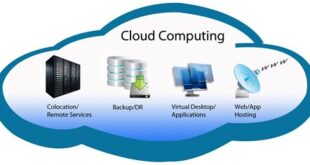
Challenges of using cloud platforms
Cloud platforms have revolutionized the way organizations operate their businesses, allowing for greater flexibility, scalability, and cost-effectiveness. However, despite the many advantages, there are several challenges that organizations might encounter when utilizing cloud platforms. In this article, we will explore these challenges in depth and discuss potential solutions.
One of the primary challenges organizations face when using cloud platforms is vendor lock-in. This occurs when an organization becomes heavily dependent on a particular cloud provider and finds it difficult to switch to a different vendor due to compatibility issues. The fear of vendor lock-in often hinders organizations from fully reaping the benefits of cloud platforms, as they worry about being tied to a single provider and losing the ability to negotiate contracts or migrate seamlessly to a different platform.
Data security concerns also present notable challenges in using cloud platforms. When organizations store their sensitive data on the cloud, they must trust the cloud provider to have robust security measures in place. The potential risks of data breaches, unauthorized access, and data loss are concerns that need to be addressed. Organizations need to carefully evaluate the security features offered by cloud platforms and ensure that they align with their specific security requirements.
Potential downtime is another challenge that organizations may face when using cloud platforms. While cloud platforms are known for their reliability, there is always a possibility of outages or service disruptions. This can have severe consequences for businesses, resulting in financial losses, productivity issues, and damage to customer satisfaction. Organizations should consider implementing redundancy measures, such as using multiple cloud providers or establishing backup systems, to mitigate the impact of potential downtime.
Furthermore, managing the complexity of a cloud environment can be overwhelming. The vast array of services and options available on cloud platforms can lead to confusion and inefficiency. Organizations must invest in proper training and expertise to ensure they can effectively utilize all the features and functionalities of the chosen cloud platform. Without a well-trained team, organizations may struggle to fully leverage the benefits of cloud technology.
Additionally, cost management can be a challenging aspect of using cloud platforms. While cloud platforms can offer significant cost savings compared to traditional on-premises infrastructure, it is crucial for organizations to carefully monitor their cloud usage and optimize resource allocation. Without proper cost management strategies in place, organizations may face unexpected expenses and inefficiencies.
Lastly, regulatory compliance presents a challenge when operating in the cloud. Organizations must ensure that they adhere to specific regulations and industry standards regarding data privacy, protection, and governance. Different jurisdictions may have varying requirements, and organizations need to navigate these complexities to avoid legal and reputational risks.
In conclusion, while cloud platforms provide numerous advantages, organizations must address several challenges to successfully leverage their benefits. Vendor lock-in, data security concerns, potential downtime, complexity management, cost management, and regulatory compliance are all critical areas that require careful consideration and strategic planning. By understanding these challenges and implementing appropriate solutions, organizations can maximize the potential of cloud platforms and drive their businesses forward in the digital age.
Cloud computing is a key component of modern technology infrastructure. Learn more about it here.
Considerations when choosing a cloud platform
Are you considering moving your business operations to the cloud? With the increasing demand for cloud computing services, it’s essential to carefully evaluate and select the right cloud platform to meet your specific needs. There are several crucial factors to consider when choosing a cloud platform, including pricing structures, performance, compliance requirements, customer support, and integration capabilities.
Pricing Structures: One of the first considerations when choosing a cloud platform is the pricing structure. Cloud providers offer various pricing models, such as pay-as-you-go, subscription-based, or a combination of both. It’s important to assess your budget and determine which pricing structure aligns with your financial goals. Consider the flexibility and scalability of the pricing plans, as well as any additional costs for storage, data transfer, and additional services.
Performance: The performance of a cloud platform is another critical aspect to consider. Evaluate the provider’s service-level agreements (SLAs) to ensure they guarantee a certain level of uptime and performance. Look for a cloud platform that offers robust infrastructure, efficient data centers, and high-speed connectivity to ensure that your applications and services will run smoothly and reliably. By opting for a platform with excellent performance, you can provide your users with a seamless experience.
Compliance Requirements: If you operate in a regulated industry, compliance requirements become an essential consideration when choosing a cloud platform. Ensure that the cloud provider adheres to industry-specific regulations and has adequate security measures in place. Look for certifications like ISO 27001 or SOC 2, which demonstrate the provider’s commitment to data protection. Additionally, consider whether the platform supports data residency, data sovereignty, and availability in the regions where you conduct business.
Customer Support: Reliable customer support is crucial when it comes to managing your cloud infrastructure. Look for a cloud platform that provides 24/7 technical support to address any issues or concerns promptly. Consider the availability of self-service resources, such as knowledge bases, documentation, and community forums, which can help you troubleshoot problems independently. A responsive and knowledgeable support team can greatly aid in the smooth operation of your cloud-based applications.
Integration Capabilities: Integration capabilities are vital, especially if you already use specific software or systems within your organization. Assess whether the cloud platform seamlessly integrates with your existing tools, databases, and applications. This will prevent disruptions to your workflows and enable smooth data transfer and communication between different systems. Look for APIs, connectors, and pre-built integrations that are available to simplify the integration process and maximize the value of your cloud platform.
Security Measures: Security should be a top concern when moving your business operations to the cloud. Ensure that the cloud platform offers robust security measures to protect your data from unauthorized access, breaches, and data loss. Look for advanced encryption protocols, multi-factor authentication, intrusion detection systems, and regular security audits. Additionally, consider whether the platform offers data backup and disaster recovery options to ensure the safety and availability of your data in case of unforeseen events.
Scalability and Flexibility: Finally, consider the scalability and flexibility options offered by the cloud platform. Your business requirements may change over time, so it’s important to choose a platform that can accommodate your future growth. Look for features like auto-scaling, which allows you to automatically adjust resources based on demand, ensuring optimal performance and cost-efficiency. Scalability and flexibility options will enable your business to adapt and expand without facing limitations imposed by the cloud platform.
By carefully assessing these considerations when choosing a cloud platform, you can make an informed decision that aligns with your business objectives and sets you up for success in the cloud. Take the time to evaluate your options, compare providers, and consider reaching out to industry experts for guidance to ensure that you select the most suitable cloud platform for your organization’s needs.
Cloud services are essential for businesses to scale and thrive. Read about different cloud services here.
 Cloud Solution All Cloud Information
Cloud Solution All Cloud Information








